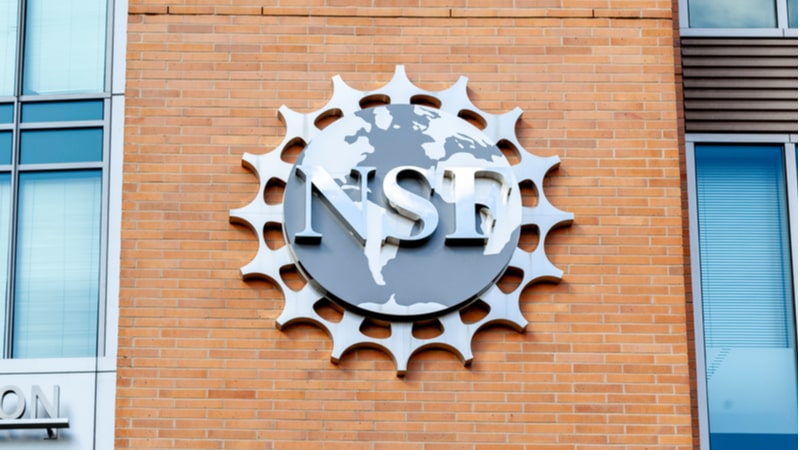
The National Science Foundation (NSF) – in collaboration with industry and other government agencies – announced a new funding opportunity on Tuesday to advance research and technology development for the next generation of wireless communication systems, known as NextG.
The NSF Verticals-enabling Intelligent NEtwork Systems (NSF VINES) program will invest up to $100 million to accelerate NextG telecommunication networks “spanning the user-edge-core-cloud continuum.”
“NSF VINES will enhance U.S. competitiveness in advanced telecommunications technologies, including NextG wireless telecommunications and emerging potential NextG vertical industries, and prepare the American workforce for jobs available now and in the future,” said Brian Stone, performing the duties of the NSF director, in a June 3 press release.
The agency said emerging “vertical industries” include autonomous vehicles, advanced manufacturing, precision agriculture, disaster response, remote healthcare, critical infrastructure, and smart grids, among others.
The NSF VINES program offers two tracks. Track 1 will focus on “use-inspired basic research” and invest in activities focused on use-inspired fundamental research to develop novel networking techniques and solutions. NSF expects to make about 20 to 30 awards for this track, with each award totaling up to $1.5 million.
Track 2 will focus on “verticals-driven technology development, demonstration, and translation” and will invest in activities focused on tech development, maturation, demonstration, integration, and translation of solutions with higher technology readiness levels, “with the goal of producing adoption-ready technologies.” NSF expects to make about eight to 10 awards for this track, with each award up to $6 million total.
Track 1 proposals are due by Aug. 25. Track 2’s deadline is Sept. 25, but NSF said organizations must submit a “concept outline” by Aug. 25.
NSF VINES is in partnership with industry organizations including Ericsson, Intel, and Qualcomm, as well as Federal agencies including the Department of Homeland Security, Department of Defense Office of the Under Secretary for Research and Engineering, and National Institute of Standards and Technology.
International partners from Finland, India, Japan, and Sweden also participated in the development of the solicitation.
“This important investment from NSF, in collaboration with industry and other government agencies, will help strengthen U.S. leadership and ensure the American people reap the benefits in areas such as self-driving cars, advanced manufacturing, energy infrastructure, and beyond,” said Lynne Parker, principal deputy director of the White House Office of Science and Technology Policy.
